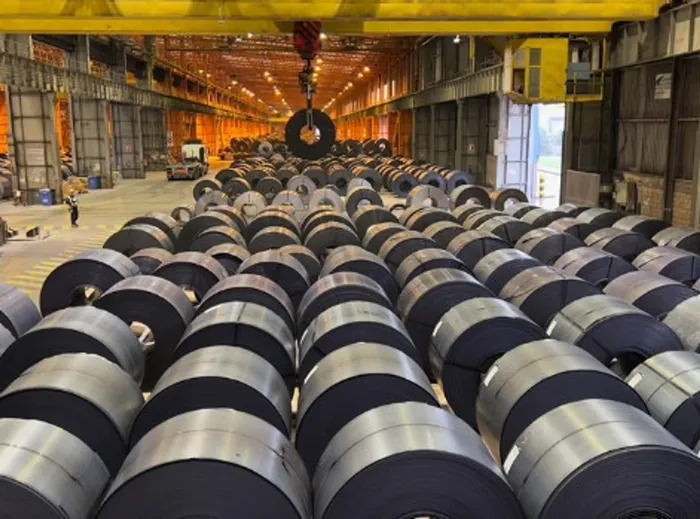
International Trade Administration Commission of SA has imposed safeguard duties on hot-rolled steel products imported from China.
Image: Supplied
IN a decisive move to shield the domestic steel industry from overwhelming foreign competition, the International Trade Administration Commission of SA (ITAC) has imposed safeguard duties on hot-rolled steel products imported from China.
The decision, published in the Government Gazette, comes after an extensive investigation into the surge of imports that have been deemed injurious to local producers within the Southern African Customs Union (Sacu).
The investigation was initiated following an application by the South African Iron & Steel Institute (Saisi), acting on behalf of ArcelorMittal South Africa Limited — the region’s leading producer of hot-rolled steel. Saisi argued that the influx of competitively priced steel from China had disrupted the local market, threatening the survival of key players in the Sacu steel sector.
Hot-rolled steel is a cornerstone material for various industries, including construction, manufacturing, and engineering. It is used to produce essential items such as mining equipment, water tanks, gas cylinders, truck trailers, and even school furniture. The product also serves as a critical input for fabricators, service centres, and pipe manufacturers who supply materials for infrastructure projects across the region.
According to ITAC’s findings, unforeseen developments led to a significant spike in imports of these products from China, which undercut local prices and caused “serious injury” to the domestic industry. This surge not only jeopardised the financial viability of local producers but also put thousands of jobs at risk, with ripple effects felt throughout related sectors.
After evaluating submissions, holding public hearings, and analysing data, ITAC concluded that the increased imports were indeed causing harm to the Sacu steel industry. In its final determination, ITAC recommended to the Minister of Trade, Industry and Competition (DTIC) that safeguard measures be imposed immediately. These measures aim to provide temporary relief to allow the domestic industry time to adjust and regain competitiveness.
“Safeguard measures are designed to address unforeseen surges in imports that threaten or cause serious injury to a domestic industry,” said ITAC in a statement. “While these measures are not punitive, they are necessary to ensure fair trade conditions and protect local industries from being overwhelmed by excessive foreign competition.”
Under Section 18(a) of the International Trade Administration Act (ITA Act), ITAC will now monitor the pricing of the affected products to prevent any circumvention of the safeguard duties.
The newly imposed safeguard duties are expected to remain in place for a limited period, giving local producers the breathing room needed to recalibrate their operations and improve efficiency. By curbing the flood of low-cost imports, the government hopes to stabilise the market and encourage investment in the domestic steel sector.
Industry stakeholders have welcomed the decision, viewing it as a lifeline for an industry grappling with intense global competition. “This ruling underscores the importance of protecting our strategic industries,” said a representative from Saisi. “We believe this measure will help restore balance to the market while ensuring that South Africa remains a competitive player in the global steel arena.”
As the safeguard duties take effect, all eyes will be on how the domestic steel industry responds. Analysts predict that the measures could lead to increased local production, job creation, and greater economic resilience. However, critics caution that the success of these efforts hinges on whether local producers can seize this opportunity to innovate and enhance productivity.
For now, the South African government has taken a firm stance in defence of its industrial base — a move that could set a precedent for future trade interventions. As the world grapples with shifting trade dynamics, this case highlights the delicate balance between globalisation and national interests.
Related Topics: